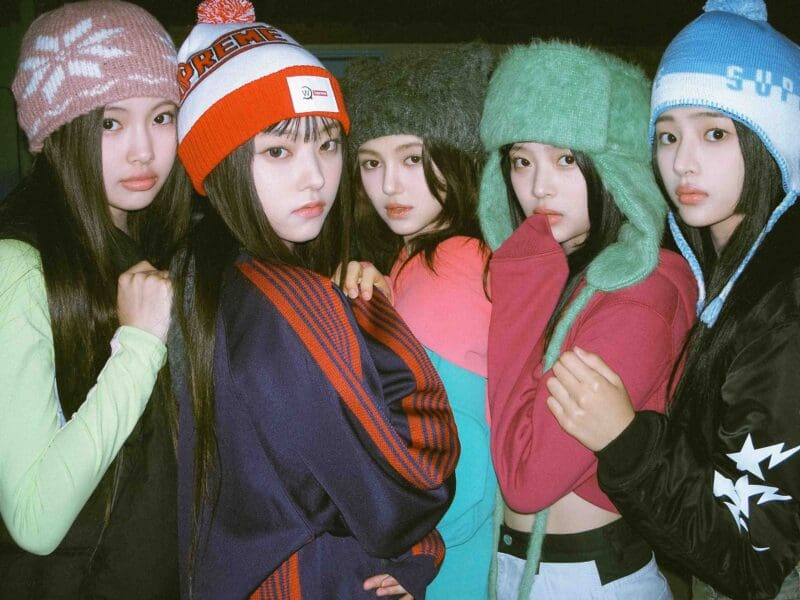
BAPE: 20 Things You Didn’t Know
BAPE, or Bape Ape, is a Japanese streetwear brand renowned for its iconic BAPE Hoodie. Since its founding by Nigo in 1993, BAPE Hoodie has become one of the most sought-after labels in urban fashion. These twenty interesting facts about BAPE may surprise even the biggest fans! Did you know BAPE Hoodie has a brick-and-mortar store just outside of Tokyo? The stores are known as BAPELAND and specialize in limited edition designs. Additionally, BAPE is a proud partner of KITH, founded by Ronnie Fieg and offering its products online for customers all over the world. Don’t forget this BAPI forever if you’re interested in BAPE gear anytime soon!
The first step. As a result of Nigo’s initiative, BAPE was founded in 1993
Bape Ape is a Japanese streetwear brand that has gained worldwide acclaim for its high quality clothing. Nigo founded the company in 1993. There is no doubt that the BAPE brand is the acronym for “A Bathing Ape” and that it has grown to become one of the most recognized streetwear brands in the world today. As a result of BAPE’s innovative approach to fashion and its edgy clothing designs, it has been spotted on celebrities, athletes, and influencers alike due to its innovative approach to fashion and its edgy designs over the past two decades. It is likely that BAPE will continue to set trends in 2020, with items such as hoodies still remaining a staple part of the BAPE wardrobe in the coming years.
2. The acronym BAPE is an unusual one
It is likely that you have never heard of a term called BAPE, which is an acronym that you may be unfamiliar with. It is an acronym that stands for A Bathing Ape, and it is a brand of streetwear that originated in Japan and is now available worldwide. This company is famous for its iconic BAPE hoodie, which was first released in the early 2000s and became quite popular as soon as it came out as soon as it came out. In the past few years, BAPE hoodies have become one of the world’s most recognizable symbols of high fashion, and are now loved by people all over the world. Many famous celebrities have worn the BAPE Hoodie brand over the years, making it an iconic brand that still sets trends even today.
3. Double meaning for the brand
BAPE Hoodies are undoubtedly the pinnacle of streetwear and fashion. It has become a cultural symbol in the modern world because it stands for ‘A Bathing Ape’. ‘Dressing shabbily, but having an air of nobility’ is another Japanese saying that is reflected in BAPE Hoodies, a meaning that can be seen when these hoodies are worn. The brand represents courage to be yourself, authenticity, and self-expression, and all of these transcend mere fashion. The BAPE hoodie is more than a hoodie.
4. In the beginning, BAPE was underground
One of the most famous streetwear brands is BAPE Hoodie, a Japanese streetwear brand that started as an underground movement. In 1993, BAPE’s hoodies became an icon of street fashion, and they remain a staple today. The BAPE brand is one of the most coveted items in the world today due to its camouflage patterns and BAPE logos on the sleeves. In its transition from an underground brand to one of global prominence, BAPE Shark Hoodie has built its legacy on being daring and forward-thinking.
5. The fifth point. As a result of Pharrell Williams, BAPE has increased in the United States
Until 2003, BAPE was mostly a Japanese brand. Together, Nigo and Pharrell Williams introduced the brand to the United States. Pharrell backed the brand, making it popular in hip-hop.
6. Coaxing Nigo to lift BAPE export limits
Nigo initially resisted marketing the brand in America. He had the notion that any marketing to the United States would create a “mass market” atmosphere, which he had not intended. For a brief period of time, Nigo lifted the limitations placed on the brand, but this would only last a few years.
7. Demand was negatively affected by raising BAPE supply limits
Nigo’s original strategy worked well for BAPE. There was always a decent demand for them despite low supplies. As supplies increased, they lost steam. A reduction in demand led to a devaluation.
8. The founder isn’t Nigo
Nigo’s real name is Tomoaki Nagao. Born in 1970 in Maebashi, Japan. He has designed for Human Made and Billionaire Boys Club brands. The Teriyaki boys DJ for him, and he runs an MTV Japan show.
9. From cool to butt of a joke, BAPE
2006 was the brand’s heyday. Rappers really liked it. It was the loud patterns on the hoodies and the printed jeans that attracted them. The sneaker colorways were also unique for their time, but the brand remained stuck in a time warp and became highly dated. It became severely dated because it lacked freshness in design and failed to keep up with changing trends in style. As opposed to nostalgia, it was a stagnation and people wearing the brand looked dated and behind the times. A new and trendy event was like wearing last year’s fashion again.
10. BAPE was sold by Nigo
Nowhere Co markets the BAPE brand. Nowhere Co was sold by Nigo in 2011. The new owners now own the controlling interest. A total of $2.8 million was reported as the sale amount. For a minimum of two years, he agreed to remain the brand’s principal designer.
11. Japanese company, but not made there
Nowhere Co and the BAPE Shark Hoodie are Japanese brands, but most of their products are made in China. This is where the company can get labor at a reasonable rate.
12. BAPE clothing costs a lot
Many people wonder why BAPE streetwear is so expensive? Japan doesn’t consider it to be an exceptional label, its origin and quality are decent, but nothing exceptional. Due to the hype surrounding it and the marking, it’s so expensive. Some BAPE items are hard to keep in stock because they sell out quickly. As long as people are willing to pay the price, the brand can raise the price.
13. BAPE knockoffs abound
Many expensive brands are counterfeited by people trying to make a buck. Make sure you know your products so you don’t get suckered. There will be differences between a knockoff and the real thing. Before you spend $300 on a pair of sneakers made in China, make sure that you’re getting the real deal.
14. Nowadays it’s camo
The BAPE Hoodie’s signature camouflage is brilliant regardless of whether you like it or not. There will always be a demand for this classic design. It’s not the loud pattern that made it look dated in the mid-2000s. It’s one constant within the brand that hasn’t gone out of style, regardless of whether you wear camo or not.
15. Fun brand BAPE
BAPE synergizes with other brands. Some of their designs are fun and reminiscent of childhood, such as sneakers with stars, clothing with gorillas, hoodies with sharks, etc. People like their current lines because they have fun images. A lot of BAPE customers are fun loving and enjoy casual and unusual designs that remind them of their childhood.
16. BAPE is either loved or hated
Some serious fans of the brand are willing to pay high prices. The expense is worth it to them. While many love the brand, there are also many who despise it. BAPE gets a lot of attention these days. Some of it is positive, some of it isn’t. At least people are talking about the brand even when they trash talk it.
17. History matters to BAPE fans
Some people wear BAPE brand streetwear because it gives them a feeling. It’s not always about making a statement or impressing people. Just like you have a favorite brand because it reminds you of a happy time in your life, you’re drawn to it and want to wear it. They are people who are familiar with the history of the brand as it relates to them personally, and they are loyal to the brand because they know it and value it.
18. BAPE isn’t a trend, it’s a lifestyle
Some people do think the BAPE brand is trendy, but the majority does not. There was a heyday, then a slump. Even though the numbers have dwindled from time to time, it has always had a loyal following. It’s not the trendiest brand, but it does serve a niche who continue to deplete the shelves of certain brands. Some people in Japan will tell you that the streetwear collection is essential to the BAPE brand, but that isn’t the general consensus. While it’s ranked above average mall brands and it’s definitely designer, it never quite reached high-end status. Pharrell’s involvement generated a lot of hype with certain audiences in the United States, but the interest didn’t last long through changing times, at least not at the rapid rate it had seen during those first few years, but rather declined. It was trendy for a brief period of time, but it’s really just a designer brand that has become a favorite for some over the years.
19. Khalid is a forever fan
The singer Khalid can’t get enough of the brand’s shoes to satisfy his desire for the shoes. He’s even talking about getting some Bathing Apes from the Soulja Boy era. Khalid isn’t the only fan; there are plenty more. He’s a good example of a larger niche that is happy when BAPE shoes are available. When you love something, there is no substitute. When old favorite shoes wear out, a new brand doesn’t fit the same and doesn’t conjure the same emotions as the old ones.
20. There’s no doubt BAPE is not for everyone
BAPE streetwear receives a mixed bag of reviews, which makes it interesting to discuss. New trends in streetwear won’t change the feelings of those who love the brand and appreciate its history. Clothing is very personal and about what you identify with. As a result of the brand’s lack of keeping up with modern trends and the fact that most of the products are manufactured in China, there are probably more negative reviews. Some reviewers claim the quality is great, but it’s nothing special. People have a lot of reasons to say something less than flattering about the brand. Some consumers make this clear, but for the rest of the consumers who continue to deplete the shelves of BAPE products, BAPE is essential streetwear.
Read More: Men’s Clothing Guide to Hoodies







